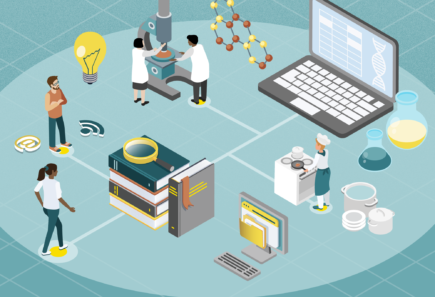
Building Your Alt Protein Career
Join us for a conversation with Julianna Madigan as she shares her journey blending academic research and industry innovation in alternative proteins.

Join us for a conversation with Julianna Madigan as she shares her journey blending academic research and industry innovation in alternative proteins.

Discover academic and industry career paths in the alternative protein sector, and get inspired by real-world experiences and actionable advice from our guest speaker.

Join us to learn about career opportunities in the culinary world that drive innovation and sustainability in food!

Discover best practices from the University of Illinois’s Integrated Bioprocessing Research Laboratory (IBRL).

Our commitment to protein innovation keeps growing stronger, thanks to deep-rooted values and a global network driving change.

Alternative proteins can address global health challenges while also offering diverse, healthy food options for consumers. Discover how alternative proteins can create a healthier future for all.

Find trade associations, professional networks, and other communities of practice dedicated to collaborating in plant-based, fermentation, cultivated meat, and related fields.
Going beyond the headlines to the people, places, and spaces advancing alternative proteins.

Join Dr. Michael Greger for a data-driven exploration of the health effects of plant-based meats compared to their animal-based counterparts.

Want to share a cell line with the research community or know of a cell line that should be included? Get in touch with us!